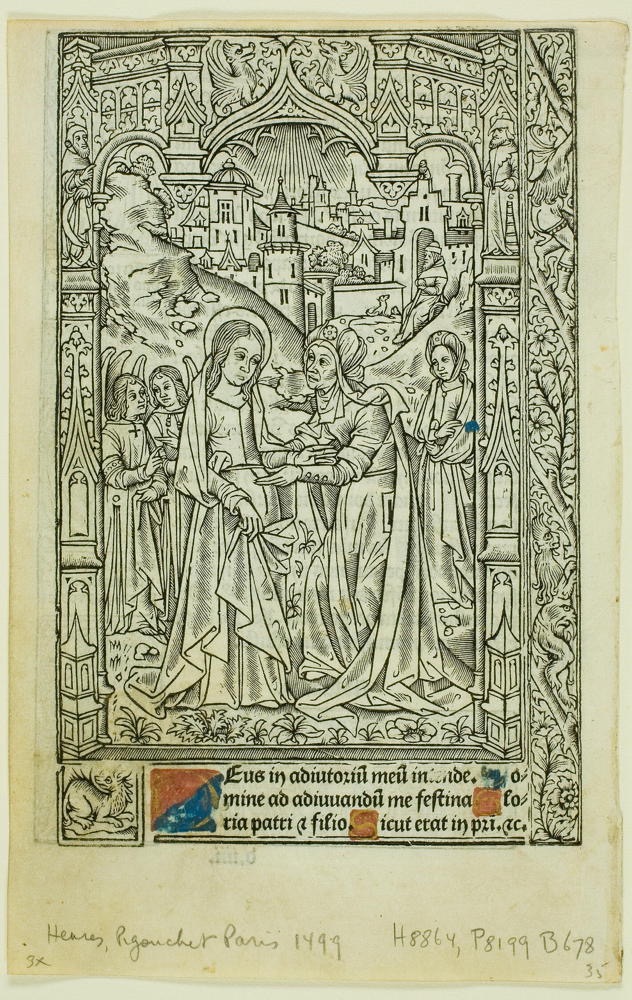Just_Visiting

Philippe Pigouchet: Visitation, from Book of Hours (15th Century)
" Who would greet us when we returned?"
During Exile, The Muse and I were able to infrequently return to the scene of our banishment to visit family and friends. We learned early in our Exile that holidays were lousy times to visit since people already had their traditions, and the last thing they needed was some fifth-wheel visitors messing up their rhythms. Also, we ached to visit ordinary times rather than during celebrations when people might be on their best or worst behavior. The one visit we made over Christmas, early in our Exile, proved disastrous. We never attempted a repeat performance.
I usually managed to make it back for my grandson Roman's birthday, even though it was in February. One year, I landed in an ice storm. If a Facebook friend from high school hadn't lived near the airport, seen my dilemma, and offered to fetch, feed, and house me overnight, I would have been stuck. The usual inconveniences accompanying every modern convenience accompanied our attempts to visit. I twice returned to perform maintenance on The Villa, which had grown uncommonly shabby in our absence. On one trip, I set about repainting the place, insisting upon taking the finish down to bare wood where I could. I stayed six weeks and would have been sunk had my brother and his family not stepped in to help. That was a memorable visit!
My mom was in assisted living for the first eight years of our Exile, and we felt responsible for coming back and seeing her as often as we could, usually no more frequently than twice each year. We'd take up residence in one of my longsuffering siblings' guest rooms and attempt to cram some visiting into what would inevitably become a remarkably short time. There's only so much a visit can cover. I remember one sweet Spring afternoon near the end of my mother's life when I pushed her in her wheelchair through her nursing home's gardens. We frequently stopped to sniff blossoms, and my sister met up with us in the gazebo afterward, where my mom dozed in the warm shadows—those rare moments refreshed our Exile.
We might have never been closer than when we were gone and returned home. Our home was never there to greet us when we came. We'd run into former friends and neighbors and fill them in on where we were living; we were Just_Visiting to them, too, no longer an inhabitant, friend, or confidant. I continued writing letters to the editor of our hometown paper, and he dutifully continued publishing them, so I maintained a local reputation in my absence. I never once lost my deep sense of association with the place from which we were displaced, but we maintained a strange relationship. I could, at best, claim to be from there, though when I visited there, I was acknowledged as presently from somewhere else.
The best way to feel like a stranger involves visiting your hometown. The place could not sit still, waiting for our return. On each visit, a few more old, reliable landmarks disappeared. In our absence, the downtown completed its transformation into a collection of cute crap shops and wine-tasting rooms, becoming a tourist destination rather than a serious center of local commerce. The center of town became a place reserved for visitors. The locals shopped elsewhere, where they could be strangers, too. Just_Visiting proved to be the loneliest time in our Exile. Distance was more reassuring when home was comprised exclusively of warmer memories. Returning would collapse the nostalgia into starker stuff. Our former world was not waiting for us. It continued on beyond in our absence. Who would greet us when we returned? This question haunted us every second we were gone.
©2024 by David A. Schmaltz - all rights reserved


